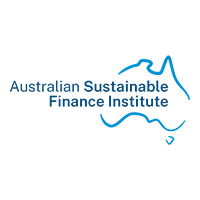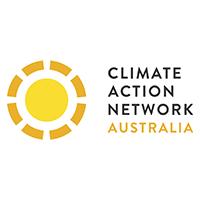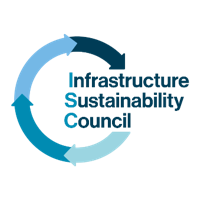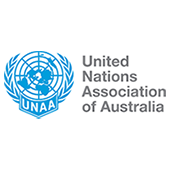22-23 November 2023, Brisbane Convention & Exhibition Centre and Online
Empowering and enabling climate action in this critical decade
Now is the time to catalyse climate action in Australia. Our summit focused on sharing knowledge and building capacity for climate action (SDG 13) among Australia's peak bodies, across all sectors and levels of government, business and non-government organisations (NGOs)—with an agenda driven by the industry peak bodies collaborating together for a Climate Ready Australia 2030.
Day 1 included the "must-have conversations" affecting organisations that are serious about advancing climate action and enabling a just transition. It opened with strategic thought leadership and discourse to accelerate climate action, with a range of curated and challenging keynotes, discussions and panels. Particpants were inspired by the exhibition space, connected with new partners over lunch and join our official reception and networking event later in the day.
Day 2 focused on capability building and included bespoke two-hour learning labs, initiated, co-designed and delivered by Griffith University and industry experts. Following on from the first day’s discussions, day two was themed around getting to the “how" of climate action—developing knowledge, leadership, capability, dialogue, and responses to empower effective and just climate action across Australian society.
Sustainable Development Goals
Griffith University is aligned with the United Nation’s Sustainable Development Goals (SDGs) and is committed to taking action on climate change and strengthening global partnerships to address this issue, collaborating on innovative solutions for a sustainable and resilient future.
About
22 to 23 November 2023
Brisbane Convention and Exhibition Centre and online
Griffith's Climate Action Beacon and Climate Ready Initiative, with support from the event sponsors RACQ and the Department of Environment and Science, Queensland Government, presented the inaugural Climate Ready Australia National Summit—two days of cross-sectoral dialogue, thought leadership and capability-building.
The Summit amplified action towards a Climate Ready Australia through sharing research and knowledge, creating networks, and working towards the Shared Agenda of the Climate Ready Australia 2030 Alliance of Peaks.
![]()

Climate Ready Australia Event Guide
Program
Wednesday, 22 November 2023: 9am to 5pm (5-7pm Networking drinks)
Thursday, 23 November 2023: 9am to 5pm
| Start | Finish | Session |
|---|---|---|
8:00am | 8:45am | Arrivals and registration |
8:45am | 9:20am | Welcome, opening remarks and setting the scene MC: Dr Caroline Riot (Director, Games Engagement and Partnerships, Industry and External Engagement) Welcome to Country: Songwoman Maroochy, Turrbal Dippil Presenters: The Hon Andrew Fraser (Chancellor, Griffith University); David Carter (Group CEO, RACQ); Prof Brendan Mackey (Director, Climate Action Beacon, Griffith University) |
9:20am | 9:50am | Ministerial address and keynote Australia now has the Climate Change Act 2022 and is rapidly approaching its second Annual Climate Change Statement to Parliament. This session explores the Australian Government’s policy, regulation and standards to advance climate action—and what it means for Australian communities and businesses. It will highlight key national levers and opportunities to accelerate climate risk management, increase resilience and rapidly reduce Australia’s emissions in the near term. Speakers include: Hon Chris Bowen MP (pre-recorded); The Hon Dianne Farmer; Prof Rosemary Addis AM (CRI Advisory Board) |
| 9:55am | 10:15am | Morning tea |
10:20am | 11:20am | Raising the bar of ambition, action and accountability What if the net zero target had to come forward to 2040? There are seven years left to cut emissions at the scale required to limit global temperature rise to 1.5°C by the end of the century. A rapid downward trend in emissions is necessary this decade, yet climate plans remain insufficient. More ambitious action is needed now. So, what are the steps, measures and interventions that accelerate achievement of net zero targets? This session examines how we raise ambition. What is missing, or is needed, to accelerate and facilitate the necessary systems and behavioural change? Where should responsibilities and accountabilities sit? Speakers include: Prof Mark Howden (Vice Chair IPCC); Andrew Wilson (CS Energy); Kate Donnelly (Investor Group on Climate Change); Andrew Petersen (BCSD Australia); Gobind Kalsi (Qld Government); Rod Welford (Adjunct Prof, Griffith University) |
11:25am | 12:15pm | Enabling a just transition: distributing the burdens of climate change The climate transition provides an opportunity to rethink our conventional structures and systems—including energy, economics, infrastructure, social policy and insurance. The concept of “just transition" is rooted in justice and equity. This session will explore climate action through a social justice lens, examining common imperatives and diverging realities for Australian communities and neighbouring nations. Speakers include: Prof Susan Harris Rimmer (Griffith University); MJ Bellotti (RACQ); Linda Ryle (Adjunct, Griffith University Law School); Dave Copeman (Qld Conservation Council); Angus Brawley (Griffith University student) |
| 12:20 pm | 1:20pm | Lunch |
1:25pm | 1:55pm | Integrity matters: net zero and nature-positive accounting and markets Do carbon markets and nature-based solutions answer the climate challenge or do they risk adverse climate outcomes? This conversation explores the challenges and opportunities within Australia's burgeoning carbon- and nature-based markets and asks how and where resources are best invested for impact. Speakers include: Terri Butler (CRI Advisory Board); Prof Andrew Macintosh (ANU); Christian Nielsen (Live & Learn); Suzanne Thompson (YACHATDAC) |
2:00pm | 2:40pm | Climate greenwashing, transition risk, and the scope 3 challenge Carbon and nature-based accounting systems do not add up. They require more precision, validation, accountability and measurability to ensure efforts and credibility are not increasingly compromised, posing climate greenwashing and transition risks. This session explores the challenges and opportunities for improved transparency, data quality, disclosure and confidence, as well as how these issues are managed up and down the supply chain. Speakers include: Georgine Roodenrys (Deloitte); Virginia Young (ARCS); Amir Ghandar FCA (CA ANZ); Christoph Nedopil Wang (Griffith University) |
| 2:45pm | 3:05pm | Afternoon tea |
3:10pm | 3:50pm | Creating and transforming critical infrastructure Poorly designed or ageing infrastructure can increase GHG emissions and vulnerability to the impacts of climate change. Rethinking, redesigning and upgrading infrastructure can help communities adapt, mitigate and build resilience. The question is how to bring about such transformative change while still meeting the needs of communities. Speakers include: Joshua Cooney (RACQ); Patrick Hastings (ISC); Iain MacKenzie (Griffith University) |
3:55pm | 4:45pm | A skilled society: equipping a workforce for just transition There is a climate capability and capacity gap across Australia’s sectors and communities. While jobs and skills have been used as an excuse to avoid transformation in the energy sector and beyond, skills enhancement forms a key lever for responding to the effects of climate change and in generating solutions. Long-term and immediate upskilling of professions and trades alike depends on adapting educational institutions and processes as well as just-in-time professional development. Innovation, integrative thinking, ingenuity and social value must coalesce to build the purposeful workforce required to support people and places into the future. Speakers include: Prof John Hewson AM (CRI Advisory Board); Prof Stephen Billett (Griffith University); Michael Wright (ETU); Dr Kimberly Camrass (Qld Government); Andeli Zuzic (AYAC) |
| 4:50pm | 5:00pm | Closing remarks Caitlin Byrne (Pro Vice Chancellor, Griffith University) |
5:00pm | 7:00pm | Networking reception |
Choose a workshop during each session.
| Start | Finish | Room | Lab |
|---|---|---|---|
8:00am | 8:40am | Registration | |
8:40am | 9:00am | Welcome and opening | |
9:00am | 11:00am | B1 | Advancing climate and disaster risk management in practice This session is run in conjunction with Deloitte and considers the interconnectedness between climate risk management and disaster risk management and distinguishes between physical and transition risk types. It explores approaches to doing a climate risk assessment and touches on the importance of assessing, reporting, and monitoring climate risk, not only for transparency and accountability, but also for financial-related disclosure of risks. The case for action versus inaction will be explored, and there will be the chance to engage in an activity on how climate change risks can be managed, and how opportunities can be harnessed. Facilitators: David Rissik (Deloitte); Prof Cheryl Desha and Iain MacKenzie (Griffith University); Jeremy Mansfield OAM (Green Cross Australia) |
9:00am | 11:00am | B2 | Climate finance, climate-related risks, disclosure and governance What is climate finance? How does it differ from sustainable finance? How can we measure climate financial risks? What is the roles of boards in addressing climate risks and engaging with stakeholders on these issues? How is Australia responding to climate disclosures and climate risk? This Learning Lab will address these questions and more. Facilitators: Prof Ivan Diaz-Rainey (Griffith University); Brett Spicer (BDO) |
9:00am | 11:00am | B3 | Place–based and nature–based solutions and decision making 1. Avoiding ‘Carbon Tunnel’ Vision. Facilitator: Prof Brendan Mackey (Griffith University); Laura Harkins-Small (Mott MacDonald); Emily Low (Mott MacDonald); Christian Nielsen (Live & Learn Pacific Network) |
11:00am | 11:20am | Morning tea | |
11:20am | 2:20pm | B1 | ESG - catalyst for change or just a buzzword? (Includes lunch) The focus of ESG is changing from compliance and target setting, towards direct interventions and strategies embedded into business model. This learning lab will consider:
Facilitators include: Prof Nick Barter and Dr Akihiro Omura (Griffith University); Cameron Balch (Impact Cooperative); Andrew Petersen (BCSD) |
11:20am | 2:20pm | B2 | Climate finance, climate related risks, disclosure and governance (repeat) (Includes lunch) |
11:20am | 2:20pm | B3 | Interpreting and using climate data and climate scenarios for decision making (Includes lunch) This session is run in conjunction with CSIRO and the NESP Climate Systems Hub, and will help navigate the landscape of climate science data sources and scenarios and answer questions to support high-level decision making for climate risk assessments. The session will cover how to interpret a range of scenarios, where to find relevant information and what information to look for. Applied examples will be given and in you will be encouraged in small groups, to put some of the learning into practice for a specified service delivery area. Facilitators: John Clarke (CSIRO); David Putland (DES). The workshop part of this Learning Lab will also be facilitated by Ramona Dalla Pozza (Climate Systems Hub & UTAS); Helen Bloustein (Victorian Department of Energy, Environment & Climate Action); Sarah Bassett (NSW Department of Planning & Environment); Tamara Pinkerton and Anna Gstaettner (WA Department of Water & Environmental Regulation). |
2:20pm | 2:40pm | Afternoon tea | |
2:40pm | 4:40pm | B1 | Insights into director responsibilities and climate governance at board level ASIC says disclosing and managing climate-related risk is a key director responsibility. This workshop considers these four key types of accountabilities: 1. Consideration of short and long term climate risk and duty to continuously reassess 2. Develop and maintain strong and effective corporate governance to make sure there is oversight of climate risks 3. Comply with the law and include in the operating and financial review (OFR) any climate risk when it is a material risk that could affect the company’s achievement of its financial performance. 4. Disclose useful information to investors to guide their decisions. How should a diligent director deal with climate risk? Facilitators: Prof Rosemary Addis AM (CRI Advisory Board); Prof Susan Harris Rimmer and Dr Jacqui Robertson (Griffith University) |
2:40pm | 4:40pm | B2 | Tracking and reporting of emissions in practice This session will build a foundational understanding of carbon accounting in the Australian context. It will outline high level principles of greenhouse gas accounting for relevant sectors and detail the steps involved in preparing carbon accounts. The session will include a discussion of net zero targets and the use of offsets. Facilitators: Prof Andrew Macintosh (ANU); Paul Dobson (Deloitte) |
2:40pm | 4:40pm | B3 | Creative solutions for climate conversations: supporting communication and community engagement Meaningful and impactful communication with communities is critical to building shared understandings of climate risks, issues and opportunities and building support and capacity for climate risk management and action. Failure to build relations of trust and genuine dialogue with communities - whether community of place, interest and/or professional/practice – can contribute to poor and short-term decision-making outcomes and lead to confusion, apathy or even conflict. Managing diverse perspectives, knowledge and opinions is a key skill that all leaders will need in managing the climate challenge. In this interactive session, participants will be guided through a participatory learning experience that explores the complexities of facilitating meaningful and productive community climate conversations. Facilitators: Assoc Prof Kerrie Foxwell-Norton (Griffith University); Seán Kennedy (Senior Media Advisor); Dr Melissa Jackson (Griffith University) |
4:40pm | 5:00pm | Close |
Venue
Brisbane Convention and Exhibition Centre
The Climate Ready Australia National Summit was held on the shores of the Brisbane River at the Brisbane Convention and Exhibition Centre (Boulevard Level), South Brisbane, originally a meeting place for traditional landowners, the Turrbal and Yuggera people. The Brisbane Convention and Exhibition Centre is an Earthcheck Platinum certified venue.
Accommodation
A range of accommodation was available in Brisbane, including at South Bank, which is close to the venue.
There are over 72 hotels within four kilometres of the Brisbane Convention & Exhibition Centre (BCEC) which are listed on the BCEC website, including by ratings and proximity to the BCEC - Accommodation around BCEC.
Event sponsors
Event sponsors














